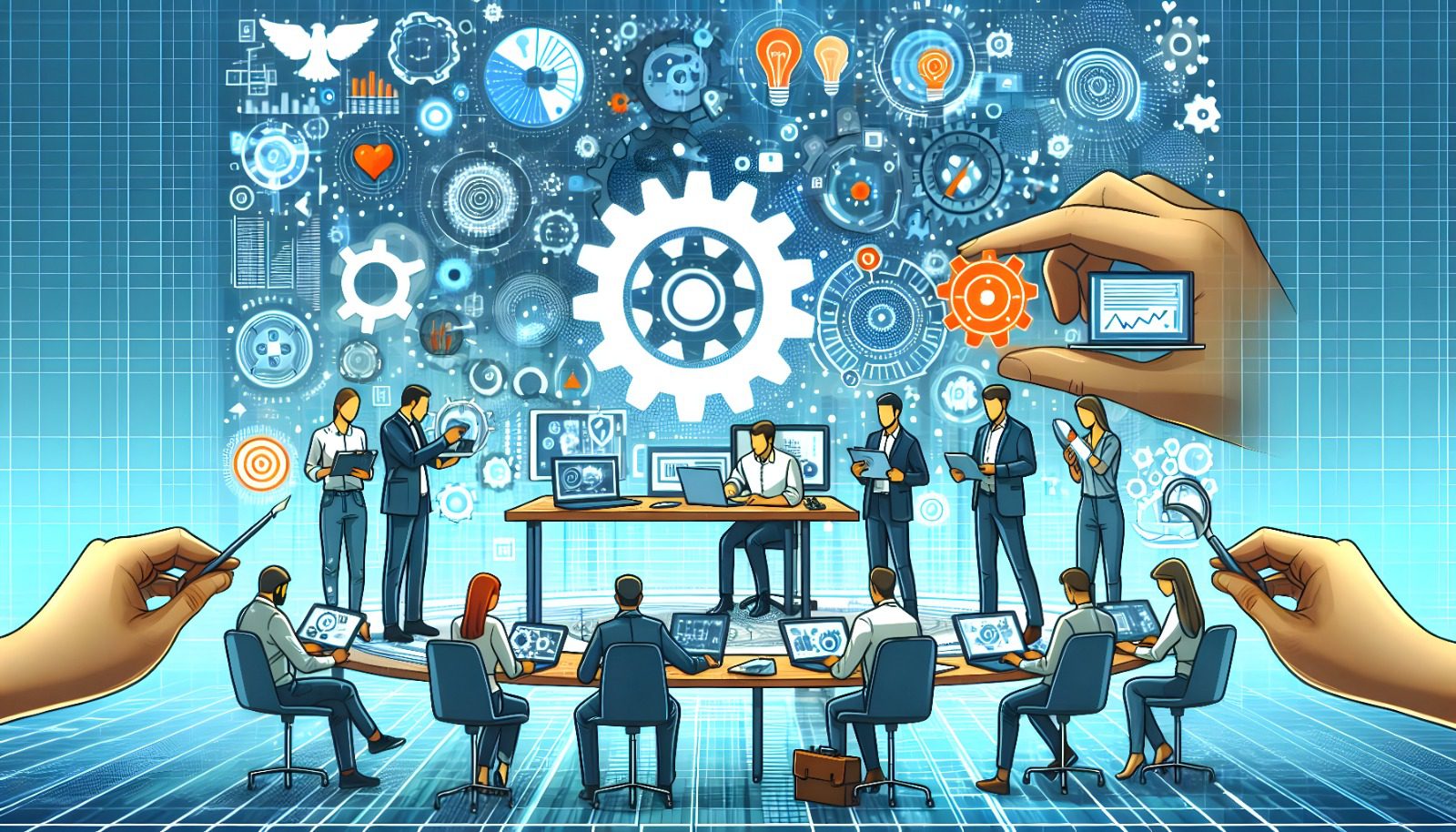
MRP vs ERP: Key Differences & Why ERP is Best for Your Business
In today’s fast-paced business world, companies are always on the lookout for ways to optimize their operations and boost productivity. A key focus area for many businesses is resource management, particularly in manufacturing, inventory control, and overall business processes. Two popular systems that businesses use to achieve these goals are Material Requirements Planning (MRP) and Enterprise Resource Planning (ERP).
While MRP and ERP systems are both designed to enhance efficiency and streamline operations, they serve different purposes and offer unique benefits. Understanding the key differences between these systems, along with the specific advantages each one brings to your business, is essential for making an informed decision. This article will delve into the functionalities of MRP and ERP, comparing them and highlighting why ERP systems often provide a more comprehensive solution for businesses.
What is MRP?
Material Requirements Planning (MRP) is a system primarily used for managing manufacturing processes. It focuses on the planning, scheduling, and control of materials used in production. MRP systems are designed to ensure that the right materials are available at the right time to meet production schedules, thereby minimizing inventory costs and reducing waste.
Key Features of MRP:
- Inventory Control: MRP systems track inventory levels, manage raw materials, and ensure that components are available for production when needed.
- Production Planning: MRP helps in scheduling production runs by calculating material requirements based on demand forecasts and current inventory levels.
- Order Management: MRP generates purchase orders for materials and components needed for production, helping businesses maintain optimal inventory levels.
- Bill of Materials (BOM): MRP systems rely heavily on BOM, a detailed list of raw materials, components, and assemblies required to manufacture a product.
MRP systems are particularly beneficial for manufacturing companies that need to manage complex production processes and ensure timely delivery of products. However, they have a relatively narrow focus on manufacturing and material management, which can limit their utility for businesses with broader operational needs.
What is ERP?
Enterprise Resource Planning (ERP) is a comprehensive software solution that integrates various business processes across an organization into a single unified system. Unlike MRP, which is primarily focused on manufacturing, ERP systems cover a wide range of business functions, including finance, human resources, sales, customer relationship management (CRM), supply chain management, and more.
Key Features of ERP :
- Comprehensive Integration: ERP systems integrate multiple business functions into a single platform, providing a holistic view of the organization’s operations.
- Real-time Data Access: ERP systems offer real-time access to data across departments, enabling better decision-making and faster response times.
- Advanced Reporting and Analytics: ERP systems provide powerful reporting and analytics tools that help businesses monitor performance, identify trends, and make data-driven decisions.
- Scalability and Flexibility: ERP systems are highly scalable and can be customized to meet the specific needs of different industries and business sizes.
- Improved Collaboration: By integrating various departments into a single system, ERP enhances collaboration and communication within the organization.
ERP systems go beyond the capabilities of MRP by offering a comprehensive solution that supports the entire business. They not only manage manufacturing and inventory but also provide tools for managing financials, human resources, customer relationships, and more. This makes ERP systems ideal for businesses looking to streamline all their operations and achieve greater efficiency and control.
MRP vs. ERP: Key Differences
Understanding the key differences between MRP and ERP is essential in determining which system is best suited for your business. Below, we outline some of the main distinctions between the two:
- Scope and Functionality:
- MRP: MRP systems are primarily focused on manufacturing and inventory management. They are designed to ensure that materials are available for production and that production schedules are met.
- ERP: ERP systems have a broader scope, encompassing not only manufacturing and inventory but also financial management, human resources, sales, marketing, and more. ERP is a comprehensive solution that integrates all aspects of a business.
- Integration:
- MRP: MRP systems are typically standalone solutions that may require additional software to manage other business functions.
- ERP: ERP systems integrate multiple business processes into a single platform, providing a unified view of the organization and reducing the need for multiple disparate systems.
- Data Management:
- MRP: MRP systems focus on managing data related to production and materials, with limited capabilities for handling data across other business functions.
- ERP: ERP systems offer extensive data management capabilities, allowing businesses to track and analyze data across all departments in real-time.
- Customization and Scalability:
- MRP: MRP systems are generally less customizable and may not scale well as a business grows or diversifies.
- ERP: ERP systems are highly customizable and scalable, making them suitable for businesses of all sizes and industries. They can be tailored to meet the specific needs of an organization and can grow with the business.
- Cost:
- MRP: MRP systems tend to be less expensive upfront due to their limited scope. However, the need for additional software to manage other business functions can increase overall costs.
- ERP: ERP systems may have a higher initial cost, but they provide a more cost-effective solution in the long run by integrating all business functions into a single system and reducing the need for multiple software solutions.
Why ERP is the Better Choice for Your Business
While MRP systems offer valuable tools for managing manufacturing and inventory, ERP systems provide a more comprehensive and integrated solution that can benefit your entire business. Here’s why ERP is often the better choice:
- Holistic Business Management
ERP systems allow businesses to manage all aspects of their operations from a single platform. This holistic approach ensures that all departments are aligned and working towards common goals, leading to greater efficiency and productivity.
- Improved Decision-Making
With ERP systems, businesses have access to real-time data across all functions, enabling better decision-making. Managers can quickly identify trends, respond to issues, and make informed decisions that drive business success.
- Enhanced Collaboration
ERP systems break down silos within an organization by integrating various departments. This improved collaboration leads to more cohesive strategies, faster response times, and better customer service.
- Scalability and Flexibility
As businesses grow and evolve, their needs change. ERP systems are designed to be scalable and flexible, allowing businesses to add new modules or customize existing ones to meet their changing needs. This ensures that the ERP system can grow with the business.
- Cost Efficiency
While the initial investment in an ERP system may be higher, the long-term cost savings can be significant. By reducing the need for multiple software solutions and improving operational efficiency, ERP systems can lead to substantial cost savings over time.
- Regulatory Compliance
ERP systems often include tools for managing regulatory compliance, ensuring that businesses meet industry standards and avoid costly fines. This is particularly important in industries with strict regulatory requirements, such as healthcare, finance, and manufacturing.
- Better Customer Relationship Management
ERP systems often include CRM modules that help businesses manage customer interactions, track sales leads, and improve customer service. This leads to stronger customer relationships and increased customer loyalty.
Conclusion
When comparing MRP and ERP systems, it’s clear that while MRP provides valuable tools for managing manufacturing and inventory, ERP offers a more comprehensive and integrated solution that benefits the entire business. For businesses looking to streamline operations, improve decision-making, enhance collaboration, and achieve long-term growth, ERP is the superior choice.
Investing in an Accnu ERP system can transform your business, providing the tools and insights needed to thrive in today’s competitive market. Whether you are a small business looking to scale or a large enterprise seeking to optimize operations, Accnu ERP offers the flexibility, scalability, and functionality you need to succeed.
FAQ's
The main difference is scope. MRP (Material Requirements Planning) focuses on managing manufacturing and inventory processes, while ERP (Enterprise Resource Planning) integrates various business functions, including finance, human resources, sales, and more, into a single system.
RP offers several advantages, including a comprehensive view of all business processes, real-time data access, enhanced collaboration across departments, scalability, and integrated management of functions like finance, sales, and HR in addition to manufacturing and inventory.
Yes, ERP systems can replace MRP systems as they encompass MRP functionalities and extend their capabilities to include other business processes. ERP provides a broader, integrated solution that covers all aspects of an organization’s operations.
ERP systems improve decision-making by providing real-time data across all departments, allowing managers to make informed decisions based on comprehensive insights. MRP systems typically focus only on manufacturing and inventory data, which can limit the scope of decision-making.
Yes, ERP systems are highly customizable and scalable. They can be tailored to meet the specific needs of different industries and can grow with the business by adding new modules or features as required.
MRP systems generally have a lower initial cost due to their limited scope, but may require additional software for other business functions. ERP systems have a higher initial cost but offer long-term cost savings by integrating multiple functions into a single platform, reducing the need for multiple software solutions.


